Learn The Benefits Of Adding These Valuable Plants To Your Landscape.

THE EFFORT TO GROW NATIVES IS WORTH IT.
These beauties improve the environment in so many ways because they’ve evolved over time with the birds, bees and animals that depend on them. Natives are attractive, remove impurities from the air, release oxygen, and help manage stormwater, reducing the risk of flooding. Their deep roots create pathways for rainwater to move through the soil instead of running off into streets, and they filter out contaminants in the water before it returns to groundwater sources.
It’s worthwhile—and easy—to work natives into your current landscape. No matter the size of your garden, patio, balcony or window box, natives fit in anywhere.
MAKE THE SWITCH
Starting slowly is often the key to long-term success. Look for ways to easily add local plants to existing beds and containers. Fill voids or replace struggling greenery with a native tree, shrub or perennial suited to the growing conditions and decorative needs of your garden. Or dedicate an entire section to natives. Organize in masses or small clusters for the greatest visual impact. Group the plants in a way that allows winged visitors to gather food more efficiently.
This story is from the February/March 2019 edition of Birds & Blooms.
Start your 7-day Magzter GOLD free trial to access thousands of curated premium stories, and 9,000+ magazines and newspapers.
Already a subscriber ? Sign In
This story is from the February/March 2019 edition of Birds & Blooms.
Start your 7-day Magzter GOLD free trial to access thousands of curated premium stories, and 9,000+ magazines and newspapers.
Already a subscriber? Sign In
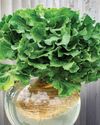
Basics of Hydroponics
Use these top tips and plant picks to have a successful soil-free garden
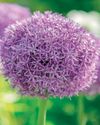
Rooted in Resilience
These hardy perennials will thrive in most zones
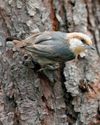
Social and Supportive
Brown-headed nuthatches take a helpful approach to raising their young

All About Owl Pellets
And why you should give a hoot about them
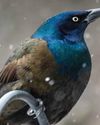
Ask the Experts
Advice from our pros about houseplants, bird feeding and more
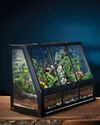
BRING THE OUTDOORS IN
Making a terrarium is about as close as you can get to a Zen DIY project. Once you have gathered the proper materials and squared away your plant selections, it's as simple as layering it all together and watching your mini ecosystem thrive. Here, I'll walk you through my foolproof process and cover all the required elements for good filtration, healthy soil, strong root growth and resistance against fungus and disease.
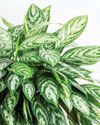
GROW THIS. NOT THAT
Six easy-to-grow houseplants—and six that may not be the right choice for you

Winter MAGIC
Forecasts may be frigid, but grab your binoculars because birding opportunities are still incredible
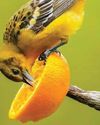
Sense or Nonsense? - Why some birds can taste and smell - but others can't
Does a porcelain berry taste like a blueberry to a gray catbird? Does a block of lard smell like frying bacon to a northern flicker? The short answer is no. While some avian species do have a well-adapted sense of taste or smell, they can't distinguish between flavors and odors the way humans can. They're not picking up every ingredient in the suet you put out, says José Ramírez-Garofalo, an ornithology researcher at Rutgers University in New Jersey and the director of Freshkills Biological Station in Staten Island, New York.

Maple Mania - Amazing facts about this fall foliage mainstay
Amazing facts about this fall foliage mainstay